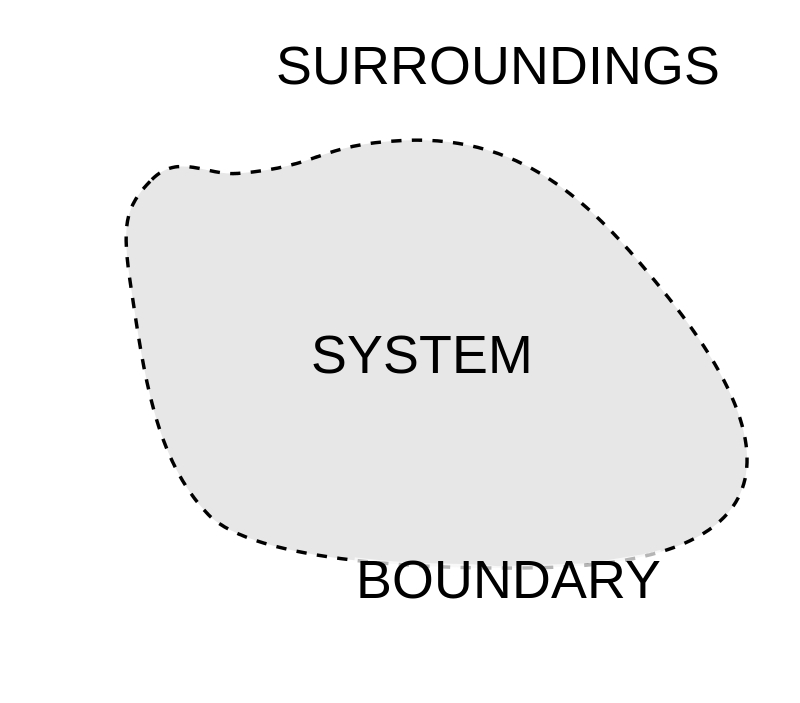Thermodynamics is a macroscopic or large-scale approach: all the molecules belong to a whole (system). When learning Thermodynamics, I remember that one of the most crucial steps to solve the problems was to delimit well your ‘system’; to define arbitrary boundaries separating your system of study from the rest of the universe or ‘surroundings’. The system is the part we are interested in observing and monitoring. It interacts with the surroundings, whose properties we are not interested in.They are constantly shaping each other, so as the properties of the system depend on the surroundings and the other way around. The nature of the boundaries-permeable/impermeable, fixed/movable, adiabatic/isolating- defines the interaction between the system and the surroundings. Different thermodynamic processes subsequently lead to ideal local and global states of equilibrium, in which the properties are equal at every location.
So? Where is the link with sustainable development? To me, sustainable development as a concept consists of drawing lines –boundaries- which define a broader system. It is also about permeability to the surroundings to be more inclusive towards nature and people, about interconnection among different elements and systems and about dependencies and interactions. Sustainability shares with Thermodynamics a system-based approach searching for system-based solutions, in which parts are optimized envisioning the whole, aiming for local and global equilibrium states where there is ‘equity’ in different locations. They both aim to model complex relations and non-linear changes by taking snapshots at subsequent macro-states.
The main difference between them is the nature of the solution: a thermodynamic problem usually has a unique and narrow solution, whereas a sustainability problem allows or needs more open solutions. Moreover, in a thermodynamic experiment you can calculate the outcome and also the uncertainty of it - based on the uncertainty of the measurements under controlled conditions. But a problem of sustainable development is surrounded by uncertainties which cannot be calculated. Mainly, because they depend on people…a highly unpredictable and uncontrollable factor!
From all the above, the main thing that Thermodynamics taught me for Sustainable development is how important is to define the boundaries of your system. Done at an early stage of the problem, the selection of these boundaries has big implications and can change the whole outcome. And what is more: it is a deliberate choice. For my graduation project, I aim to include the properties of the atmosphere in my ‘system of study’, not only as an external condition that shapes an aircraft’s engine design but also as a receiver of the engine’s polluting emissions. Maybe I manage to understand the interactions.
